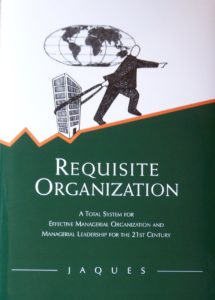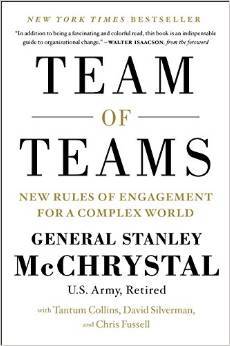Benefits of the right organisational design
- Higher performance of the team as a whole
- More inspired people in the right roles, at the right size
- More opportunity for ideas to flow in a ‘team of teams’
From Requisite Organisation to a ‘Team of Teams’


The Ensemble Way draws in part on the research of the psychologist Elliott Jaques, in Requisite Organisation and other books. He investigated how people—their skills, effort and ambitions—function best in organisations, both for the organisation’s success and for their own feeling of accomplishment.
His approach to organisational learning has significant implications for organisational design. While other practical management theories overlook the significance of Jaques’s contribution, we incorporate some of his ideas into what we call ‘just work’, with the emphasis on fairness, in such things as felt-fair pay, and even social justice.
More recently, we’ve been impressed by former General Stanley McChrystal’s ‘team of teams’ approach. The military is the ultimate ‘requisite organisation’ but McChrystal succeeded against an amorphous enemy by decentralising decisions made in a time-sensitive and uncertain environment, and being radically open with information up and down the line.











